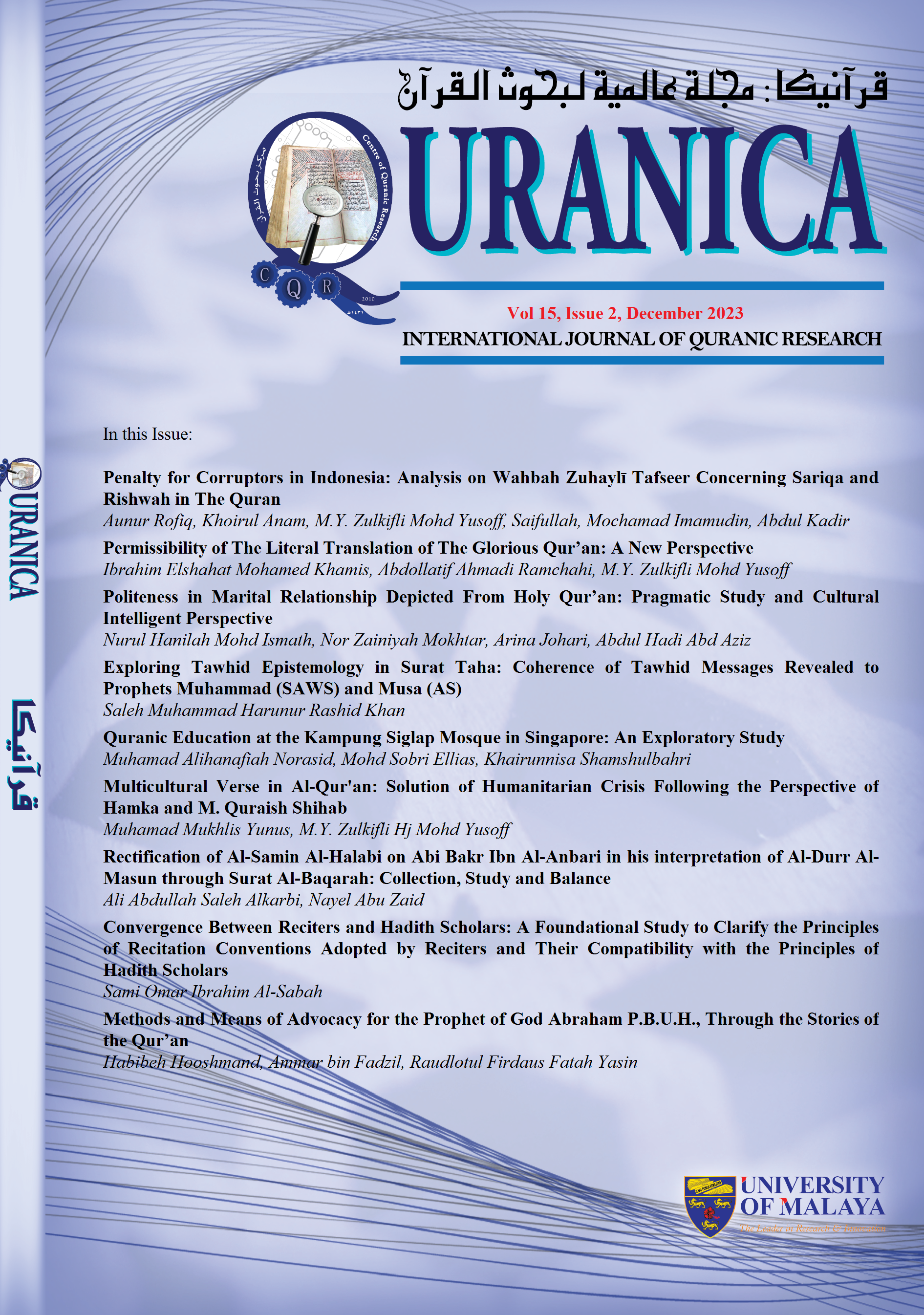A Qualitative Approach in the Empowerment of Al-Qur'an Education in the 21st Century: ABAHATA Method Study by Institute of Quranic Studies (IPaQ)
Main Article Content
Abstract
Facing the 21st century, UNESCO (1996) through the journal "The International Commission on Education for the Twenty First Century" has recommended lifelong education implemented based on four principles of the learning process, namely Learning to know, learning to do, learning to be, and learning to live together. To realize these educational principles, teachers need to master and apply information and communication technology in learning, known as cyber teaching or e-learning, as well as in learning the Quran and Hadith. In this regard, innovative digital roles in learning the Quran and Hadith can help enhance achievement in Quranic and Hadith knowledge. However, despite the benefits of digital materials, there are marginalized groups such as the elderly, children, and others who may not have access to such materials. Therefore, natural learning as taught by the Prophet s.a.w to his companions, which involves face-to-face interaction, should not be overlooked because it also plays a role in helping marginalized groups master the knowledge of the Quran and Hadith. Hence, this study aims to examine a method of Quranic learning developed by the Institute of Quranic Studies (IPaQ), known as the ABAHATA method. This study employs a qualitative approach with a document analysis research design. Data collection involves using documents provided by IPaQ as primary sources and other scholarly materials such as articles, books, and official websites. The study findings indicate that the method used aligns with teachings attributed to the Prophet s.a.w. Additionally, it was found that this method can assist illiterate students in reading the Quran within 30 hours.
Downloads
Article Details
Disclaimer
QURANICA makes every effort to ensure the accuracy of all its contents. However, opinions, discussions, views and recommendations are expressed in this journal do not necessarily reflect the official policy of QURANICA or views of its editors or publishers. Therefore, QURANICA and its publishers will not be liable for any controversy may be arisen. The journal reserves the right, at its sole discretion, to change its terms and conditions of publications.
Copyright
It is a condition of publication that manuscript submitted to the journal have not been published, accepted for publication, nor simultaneously submitted for publication elsewhere. By submitting a manuscript, the author(s) agrees that copyright for the article is transferred to the publisher, if and when the manuscript is accepted for publication.
